Beyond Britain: How to Optimise Your Content For a Global Market
In spite of the divisive rhetoric around Brexit right now, Britain is part of a wider international community. It does not exist in a vacuum. Other nations can provide valuable markets to British businesses. If you want to take advantage of those markets, you need to know how to optimise your online content.
The internet is the very epitome of a global phenomenon. That makes it tempting to think that the online world isn’t subject to the same national borders as the real world. In some ways that’s true. In others it’s quite simply not. The use of the net in different countries is impacted and altered by many different factors.
Those factors include things like language, cultural perspectives and national legislation. That means your SEO efforts need to react to those changes. That’s how to reach out to the global market. This guide is going to help you along with some handy hints and pieces of advice.
We’re going to take a whistle-stop tour around the world. At each location we visit, we’ll talk about optimising content for the local market. We’ll cover how you need to optimise content for language and cultural differences. We’ll also talk about how that market’s search engine preferences may affect you.
Book a Consultation
How to Optimise Your Content For Europe
Optimising Your Content For Search Engines in Europe
Let’s begin with Britain’s nearest neighbours. Across Europe, Google is the dominant search engine. It accounts for a larger share of web searches in many mainland countries than in Britain. In Britain, around 87% of search traffic originates from Google. In Spain, it’s as high as around 94%.
That means that when optimising content for Europe, you’re still optimising for Google. Technical aspects of your SEO, then, can be broadly similar. You will still be working to satisfy the same algorithms. Google’s idea of what constitutes good practice stays the same across borders.
SEO as a field is different in Europe, however. In general, it’s a little less developed than in Britain. European firms have yet to grasp the relevance and importance of SEO. That can present you with an opportunity.
It can be easier than you may think to usurp local firms with content optimised for European markets. Competition for keywords and for high places on Google SERPs will be much lower.
Language & Cultural Differences in Europe
The preferred search engine across Europe may be the same. The searchers, though, are different. Optimising your content needs to take this into account. That means considering both language and cultural differences.
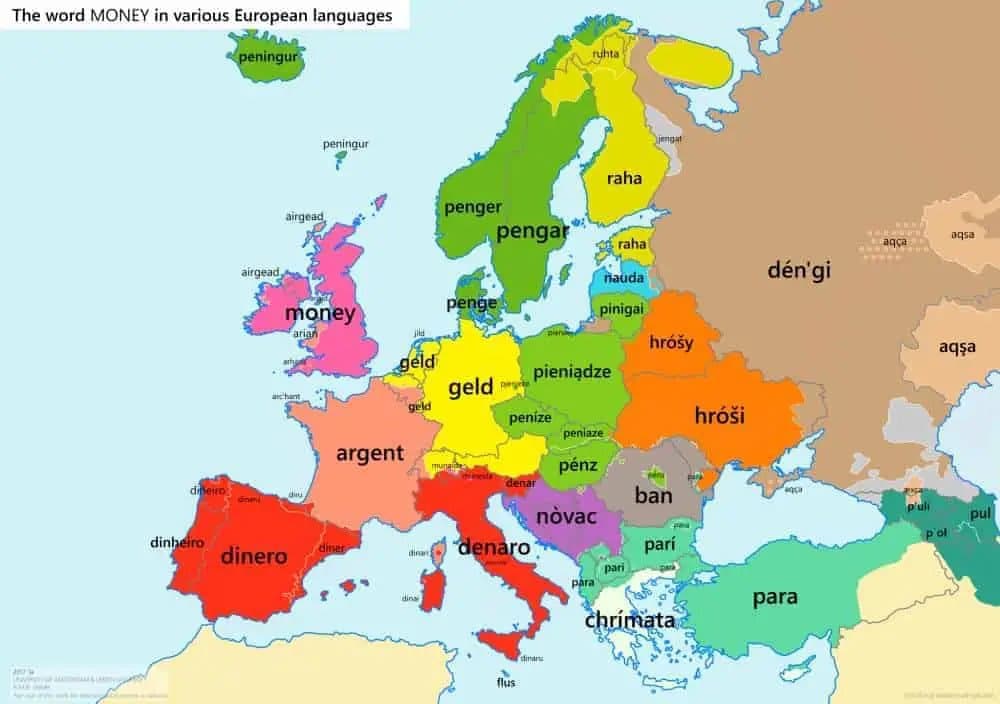
There are hundreds of different national and regional languages in Europe. The above map shows that quite well and still doesn’t cover every possible dialect. That means you need to optimise your content for those different languages. That’s how to properly corner the European market.
To do the job well, you’ll want different domains with original content in separate languages. That means you’ll have quite a lot of similar content across those domains. There are two challenges associated with that. The first is ensuring that the right searchers are pointed to the right content. The second is stopping Google from identifying the domains as duplicate content.
Hreflang tags can solve both those issues. They help identify the multilingual content you have created for different markets. This Yoast article is where you should head for an in-depth guide into how to use the tags.
Beliefs and etiquettes change as readily as languages as you move through Europe. That’s important for your content, as you need to optimise it for each target audience. What may be engaging content in one country could be irrelevant, or worse offensive, in another.
The best way to account for these differences is to work with a native of the country you’re looking to move into. They’ll be able to tell you what your content needs to say. They’ll also be able to steer you towards the best format and presentation to use to grab your new demographic.
How to Optimise Your Content For Russia
Optimising Your Content For Search Engines in Russia
Russia is set apart from the rest of Europe in many ways. SEO is one of them. Unlike the rest of mainland Europe, Google do not dominate in Russia. The most popular search engine is actually Yandex and has been for many years.
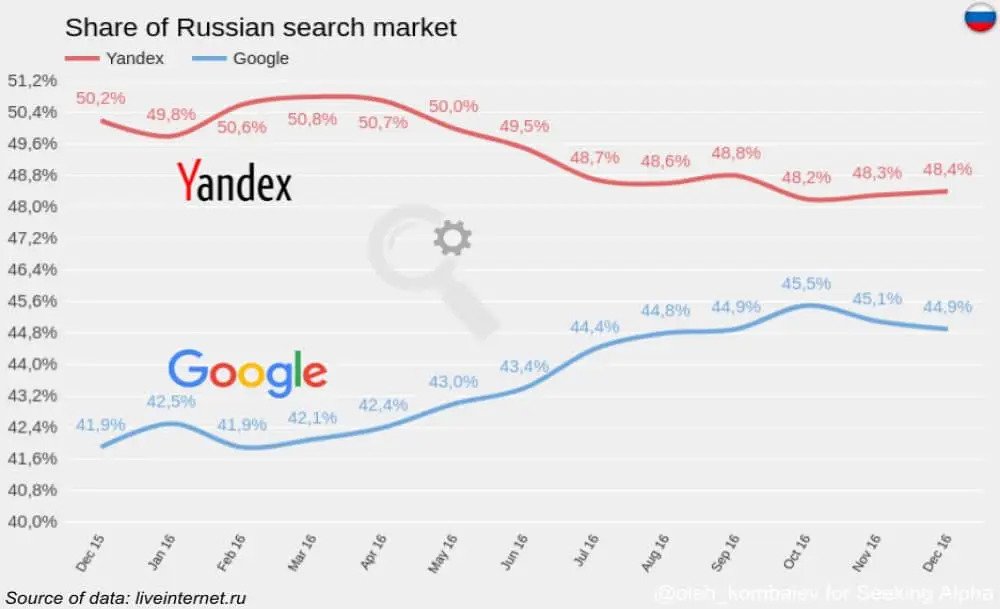
As the above graph shows, Google does still have a significant foothold in the country. That means you need to make a decision about which search engine to optimise your content for. Fortunately optimising for Yandex isn’t too much different to optimising for Google. There are a few things, however, which you should keep in mind:
- Yandex is much slower indexing pages
- It lets you use much longer page titles than Google
- It likes meta keywords. It’s desirable to have four or five per page
- Yandex’s algorithms are slightly simpler than Google’s. That makes it somewhat easier to optimise for.
- It prioritises user behaviour and actual traffic over links when determining rankings.
Language & Cultural Differences in Russia
The same considerations apply to Russian content as content in other European languages. If you’re going to create content in Russian, the decision of which search engine to optimise for is far simpler. Yandex is much better at crawling and indexing pages in Cyrillic script.
What’s more, Yandex is also able to cope well with Slavic and Turkic languages. That makes it an important search engine to optimise for if you’re targeting other nations. They include the likes of Ukraine, Belarus and Turkey.
Russia is vast. When optimising content for Russia, you must take this into account. You need to optimise content for different regions. Russian searchers will generally include their region or city in search terms. The same keywords will also garner different results in different regions. Evgeniy Garkaviy covers this in fascinating depth, here.
How to Optimise Your Content For China
Optimising Your Content For Search Engines in China
Whereas Google has stiff competition in Russia, in China it’s shut out of the search market almost entirely. The Chinese government blocked Google back in 2010. It’s still possible to use the search engine but their share of the search market is tiny. The dominant search channel in China is Baidu. Baidu adheres to the strict state censorship in China.
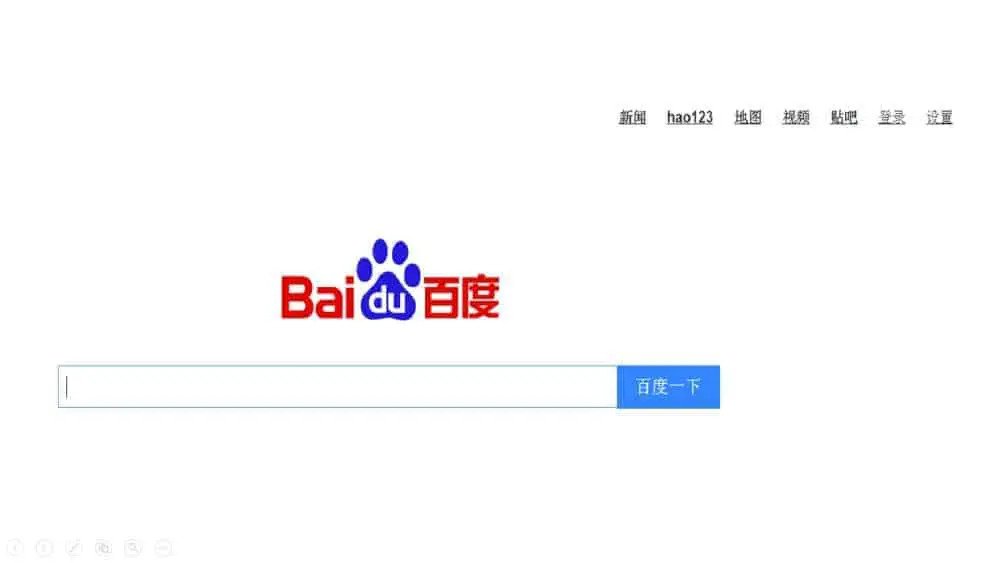
As you can see, Baidu’s search page looks very similar to Google. There are some key differences between how Baidu and the more familiar search engine operate:
- Metadata, canonicals, H1s and page titles are weighted differently
- Metadata is considered as a ranking factor
- Paid ads are incorporated into search results
- Baidu does not understand hreflang
- The Chinese search engine struggles to function with JS or Flash
- Baidu’s management of links is less sophisticated. Quantity of links is still more important than their quality.
Language & Cultural Differences in China
Due to its sheer size, China is a country of many languages and dialects. When it comes to SEO content, it pays to focus on basic Mandarin. That’s the language that Baidu prefers. Given the complexities of Mandarin, you will definitely want to employ a native speaker to create your content.
That content should also be refreshed on a regular basis. Baidu is just as big a fan of unique, new content as Google. What the content should – and can – contain is quite different, though. China impose very strict limitations on online content.
Anything referencing human rights, sex, religion and other topics will be quickly blocked. Whether you agree with China’s position on those issues or not, your content has to fall in line with their rules. That’s the only way to enter and benefit from the Chinese market.
How to Optimise Your Content For Japan
Optimising Your Content For Search Engines in Japan
The search engine market in Japan is pretty similar to Britain. The lion’s share of web traffic (around 75%) comes from Google. Much of the rest (around 22%) is then accounted for by Yahoo! Japan. That leaves next to nothing for any other search engines.
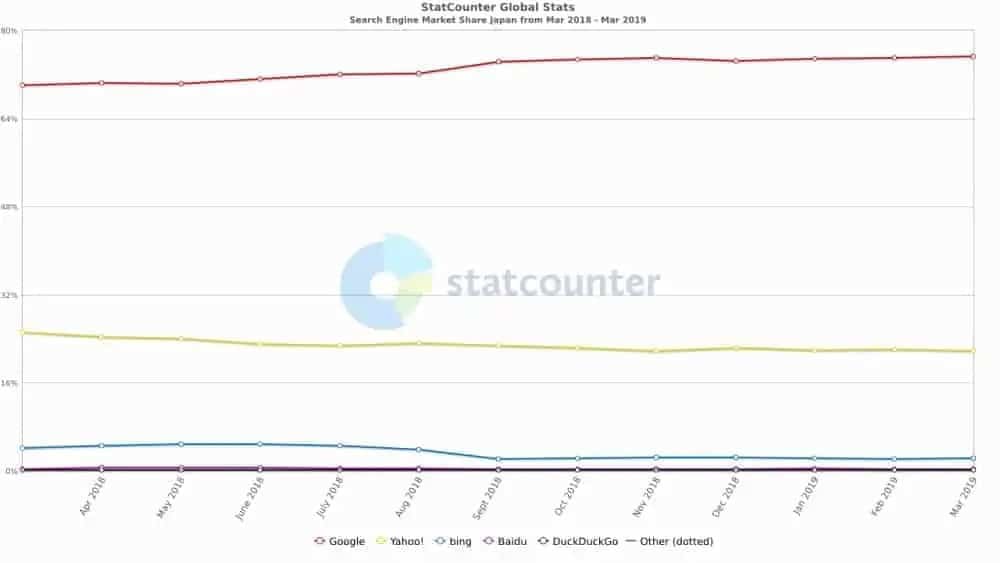
To optimise your content for Japan, then, it’s Google and Yahoo! Japan you’ll want to focus on. What that means in reality on a technical level, is optimising for Google. There are very few differences in how Google and Yahoo! Japan operate as far as SEO is concerned.
Language & Cultural Differences in Japan
Your main concern when optimising your content for Japan is your target audience. You need your content to fit best to those who you want to read it. Before you even get to what the content includes, that means presenting your content in a Japanese way.
Japanese websites tend to look very different to UK or US ones. They’re very busy and dense with information on every page. There’s no thought from Japanese web designers for sleek presentation or minimalism.
That’s because Japanese web users don’t want anything of the sort. They prefer to have lots of information before making any purchase decision. They would view a UK-style web homepage with very little text on it as being untrustworthy. In the same way as a UK user may view a busy Japanese-style page as being unprofessional.
Such cultural differences are why it does pay to work with a local when optimising international content. In the case of Japan, there’s another reason why it’s a good idea. That’s because in Japan there are four writing styles. With the best will in the world, Google Translate is not going to give you enough help.
How to Optimise Your Content For Australia
Optimising Your Content For Search Engines in Australia
Google is king across the English-speaking world. It is the search engine that determines the general shape of SEO. There’s no notable difference in the case of Australia. Google account for the huge majority of search traffic in the country.
If you target the Australian market, you can narrow your focus to Google. There are no other notable search engines to worry about. That means your technical SEO won’t have to change. All you have to think about is optimising your actual content for Australian users.
Language & Cultural Differences in Australia
The UK and the US are both English-speaking countries. There are still notable differences in their languages. In the UK, you might see the colour of someone’s ice cream and ask them what flavour it is. In the US, you’d see the color of it and ask them about the flavor.
Things are more complicated when it comes to Australia. The country falls into something of a murky middle-ground. There’s no definite preference for either British or US spelling.
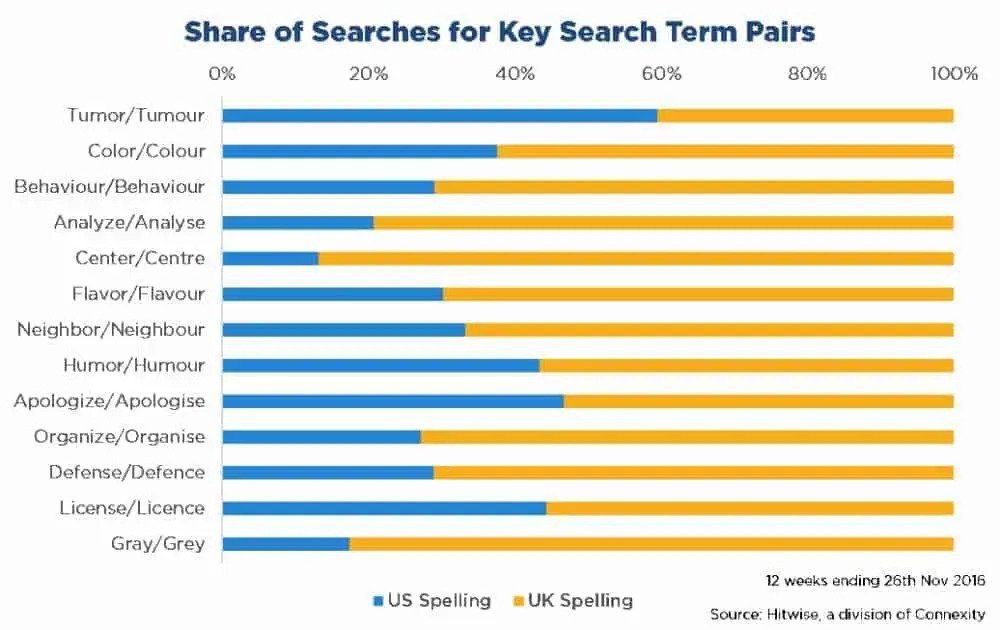
That’s important when it comes to optimising your content. You want your keywords and content to use the right spelling. In general, British spelling is preferable for the majority of Australians. As such, we’d recommend you use British spelling for your content, but then as a Bristol creative marketing agency, we would!
In practice, you may want to take a closer look at your target audience. Younger Australians can be more open to US spelling. Competitor research might be a good avenue to find which spelling to use for your keywords. You’ll want to mirror what the highest ranking sites for the keywords are doing.
Optimising Content For a Global Market – Key Takeaways
Optimising your content for a global market can be very beneficial. Your service or product might really hit the spot for an international audience. That can produce significant financial rewards. Entering new markets is never straightforward, however.
You can’t simply take your existing content, run it through Google Translate and hope for the best. You need to pay real attention to the new market you’re targeting. To understand it from a technical SEO and from a human point of view.
That first means identifying the search engine you need to optimise for. If it’s not Google, you must find out how the search engine differs from the US giant. How they rank sites, what their link building standards are, and other similar factors are key. They must inform the shape and style of your technical SEO.
Once you know the search engine to optimise for, you need to get to know the audience you’re creating content for. That means getting an understanding of both language and of cultural differences in the country. That’s how to ensure that your content truly speaks to your new target market.
Only by understanding different national markets can you optimise content for them. A different market will need different content. That’s not only in terms of what the content says but also how it’s presented.
Researching cultural norms and language styles in a target country will be helpful. Often, though, the best way to ensure your content is spot on is by working with a local.
Someone who is a native speaker has key skills you’ll need. They will be able to create the high-quality content that all search engines want. They’ll also be keyed in to the same standards of etiquette or cultural norms of the audience you’re targeting.



